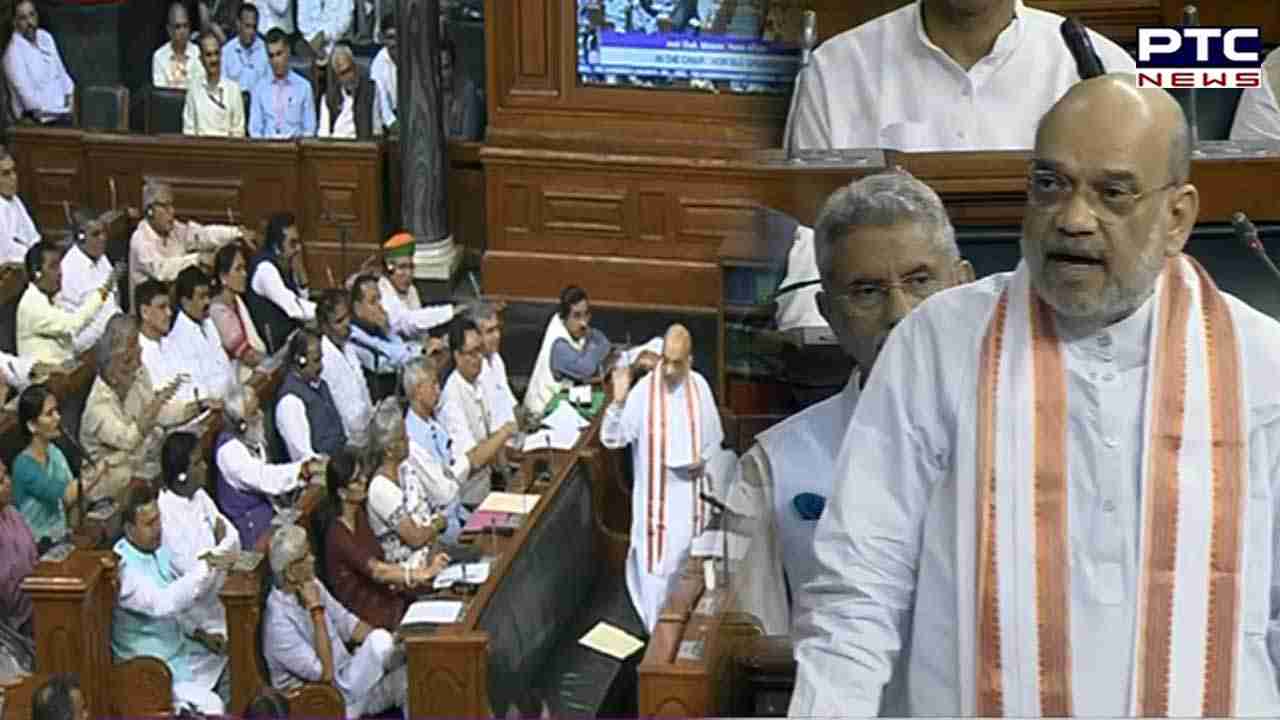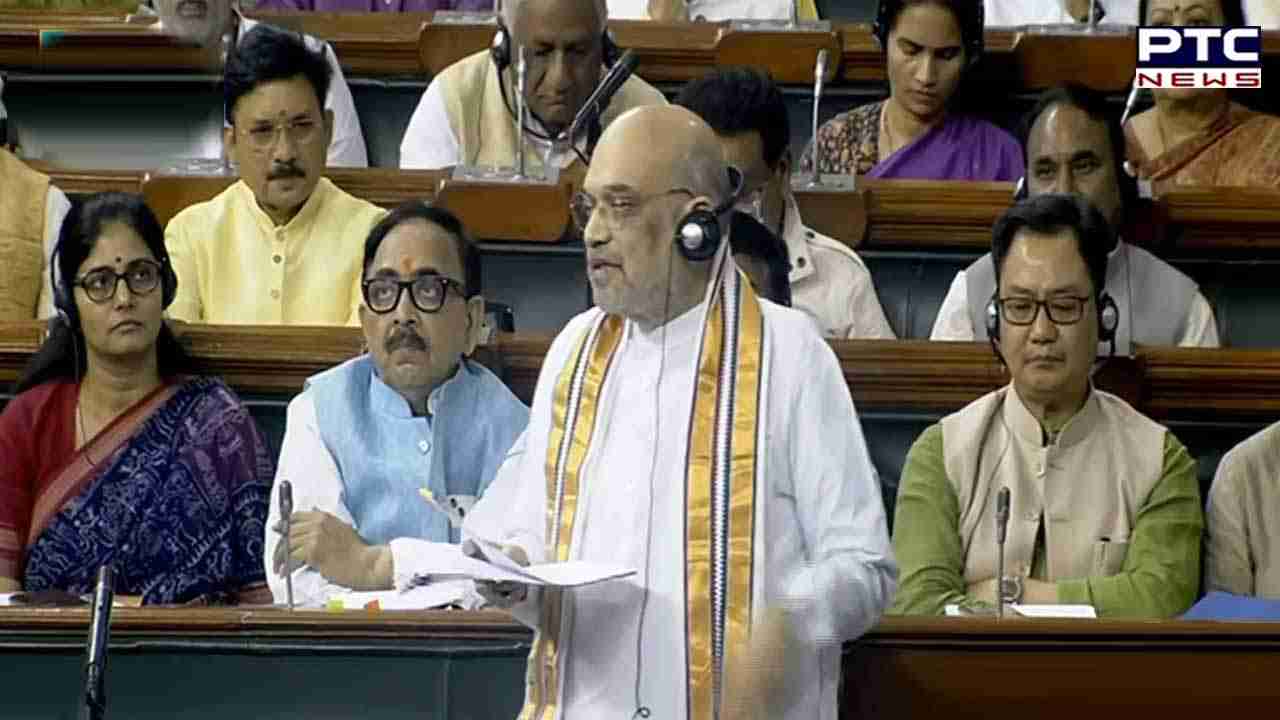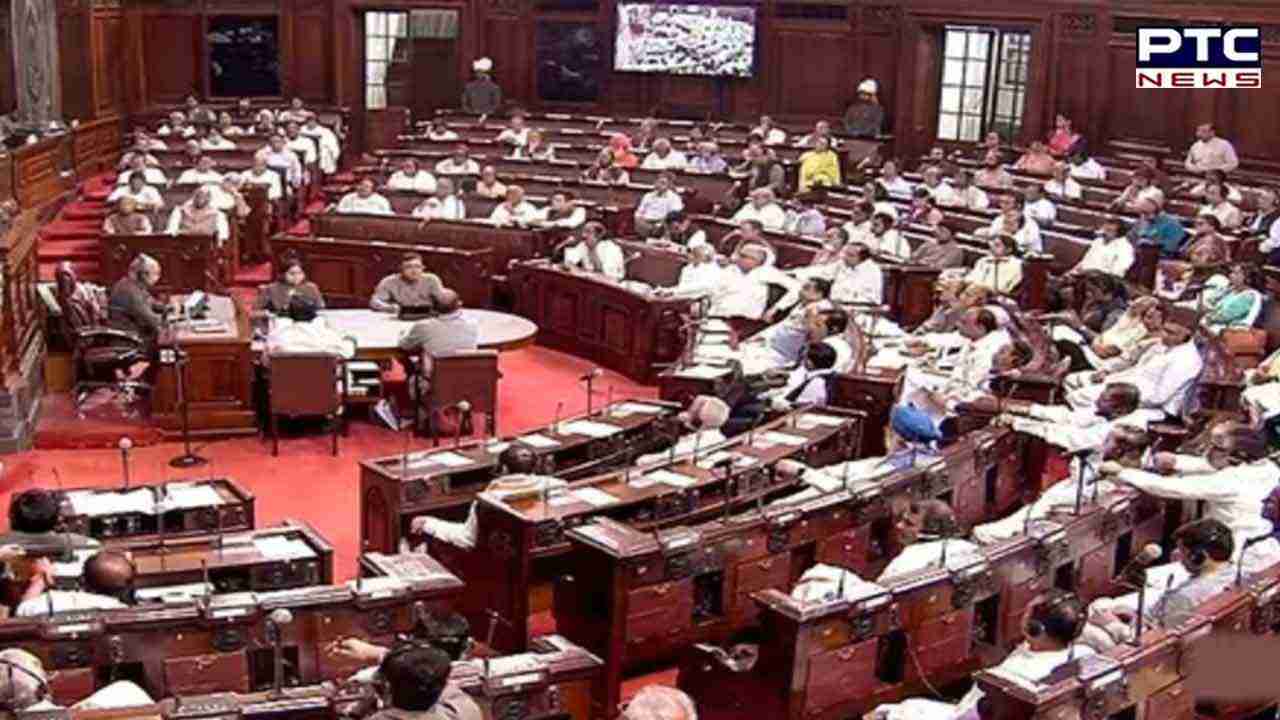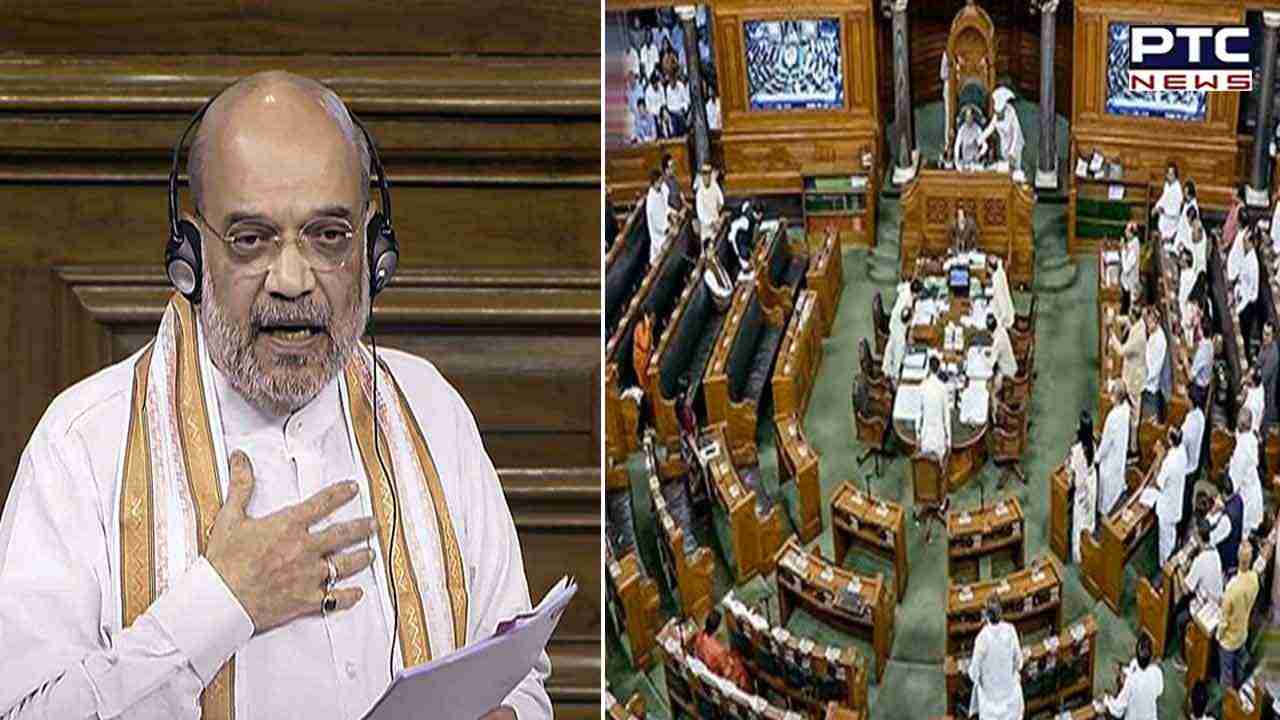

Amit Shah presents Bills for overhaul of British-established IPC and Evidence Act
Reforming Criminal Laws: In a momentous significance aim, Union Home Minister Amit Shah introduced three Bills in Lok Sabha on the last day of the Parliament Monsoon session 2023.
These Bills aimed at replacing British-era laws with a thrust on “justice instead of punishment.”
Also Read: AAP's Raghav Chadha temporarily suspended from Rajya Sabha amid 'gross violation of rules'
The Bharatiya Nagarik Suraksha Sanhita 2023,
The Bharatiya Nyaya Sanhita 2023,
The Bharatiya Sakshya Bill 2023
The Bharatiya Nyaya Sanhita 2023 seeks to replace IPC 1860, Bhartiya Nagrik Suraksha Sanhita 2023 seeks to replace Criminal Procedure Code and Bharatiya Sakshya Bill 2023 will replace the Indian Evidence Act, 1872.
_b42125f4c891b131aba2de5ea491a24b_1280X720.webp)
The bills are not aimed at giving punishment but rendering justice. He said the bills have been introduced after extensive consultations.
The key provisions of the legislation include repealing sedition, a new penal code against mob lynching, death for rape of minors and first-time community service as one of the punishments for petty offences.
The offences against women and children, murder and offences against the State have been given precedence. New offences of terrorist acts and organised crime have been added to the Bill with deterrent punishments.

The Bharatiya Sakshya Bill 2023 provides that 'evidence' includes any information given electronically, which would permit the appearance of witnesses, accused, experts and victims through electronic means.
It provides for admissibility of an electronic or digital record as evidence and it shall have the same legal effect, validity and enforceability as paper records. The bill seeks to expand the scope of secondary evidence to include copies made from the original by mechanical processes, copies made from or compared with the original, counterparts of documents as against the parties who did not execute them and oral accounts of the contents of a document given by some person who has himself seen it and giving the matching hash value of original record will be admissible as proof of evidence in the form of secondary evidence.
It seeks to put limits on the facts which are admissible and its certification as such in the courts. The proposed Bill introduces more precise and uniform rules of practice of courts in dealing with facts and circumstances of the case by means of evidence.

The Bharatiya Nagarik Suraksha Sanhita 2023 proposes to repeal the Code of Criminal Procedure, 1973.
It provides for the use of technology and forensic sciences in the investigation of crime and furnishing and lodging of information, and service of summons, through electronic communication.
The bill states that a citizen-centric approach has been adopted for the supply of copies of the first information report to the victim and to inform them about the progress of the investigation, including by digital means.
The Code of Criminal Procedure, 1973 regulates the procedure for arrest, investigation, inquiry and trial of offences under the Indian Penal Code and under any other law governing criminal offences. The Code provides a mechanism for conducting trials in a criminal case. It gives the procedure for registering a complaint, conducting a trial and passing an order, and filing an appeal against any order.
The bill states that delays in the delivery of justice due to complex legal procedures, large pendency of cases in the courts, low conviction rates, low level of uses of technology in the legal system, delays in the investigation system, complex procedures, inadequate use of forensics are the biggest hurdles in speedy delivery of justice, which impacts poor man adversely.

The Bharatiya Nyaya Sanhita 2023 seeks to repeal the Indian Penal Code to streamline provisions relating to offences and penalties. It is proposed to provide first-time community service as one of the punishments for petty offences.
The statement of objects and reasons of the bill says that offences against women and children, murder and offences against the State have been given precedence. "The various offences have been made gender neutral. In order to deal effectively with the problem of organised crimes and terrorist activities, new offences of terrorist acts and organised crime have been added to the Bill with deterrent punishments. A new offence on acts of secession, armed rebellion, subversive activities, separatist activities or endangering the sovereignty or unity and integrity of India has also been added.
- With inputs from agencies
